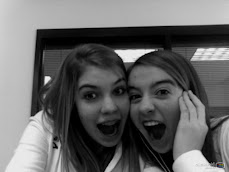An essay response to the novel The Power and the Glory by Graham Greene.
In the novel, The Power and the Glory by Graham Greene, the life of Jesus Christ is ironically portrayed through the life of a flawed, unworthy priest. "It was for this world that Christ had died; the more evil you saw and heard about you, the greater glory lay around the death. It was too easy to die for what was good or beautiful, for home or children or a civilization-- it needed a God to die for the half-hearted and the corrupt." (97)Just as Jesus was of no value to the Jews, this priest had lost all respect. Aside from the fact that religion was illegal, the priest had made many mistakes and committed many crimes that caused judgment. Although, there were still some that followed the beliefs of the priest, they longed to find God once again and they believed the only way they could do so was through the priest.
Often times when he would near a village, immediately the priest would be asked if he could listen to confession. This shows the villagers obvious concern with their wrongdoings. As humans we are naturally imperfect, the only man that has ever walked this earth that wore the title of perfection was Jesus Christ. The irony of this is that the priest is the Christ figure; he is far from perfect, however. We strive to be perfect, but the reality of the fact is that the world's view of perfection is much different than God's view of perfection. Once a human being figures that out they can admit to needing help. No one can walk alone; they can't make all these decisions on their own.
The novel is laid out in a way that is parallel to the passion. As it begins the priest is called by a young man with a donkey to help his mother. The young man allows the priest to ride his donkey, just as Jesus rode his donkey into Jerusalem. The priest, however, was lead into an alley of filth and dirt, while Jesus walked upon palms; this is true irony. Along with being lead through such grime, the priest also missed his ship. This ship was meant to take him away from the land that hated him so; it was to provide an escape for him. Many of the other priests were long gone, this priest was one of the few that were left. Christ had the power to escape his death, but he chose not to. The priest could have boarded the boat and never looked back, but he chose to go help this poor woman and he gave up his freedom. Doing good can look so unattractive while evil can draw us in so strongly. In the bible there is a reference to how hard it is to do good in this world we live in. Matthew 7 :13 says Enter through the narrow gate. For wide is the gate and broad is the road that leads to destruction, and many enter through it. The world stands on one shoulder-- tending to sound much more attractive-- and God stands on the other, it is our responsibility to choose which side to listen to.
After Jesus entered Jerusalem he called his disciples for one last meal: The Last Supper. He talked of the breaking of his body and the pouring of his blood. He displayed to the disciples the reason he was to give his life-- to save the world. The priest was given some sandwiches before he finally left for the village that held the murder. The sandwiches were from Ms. Lehr-- a woman that he had stayed with. "He was aware of an immense load of responsibility: it was indistinguishable from love." (66) As he turned to leave, he was leaving behind all that he knew, the people he cared for, he was going to lose his life so they could gain from it. We tend not to think of losing someone as gaining anything but, in this time killing the priest seems to be the only thing that will bring peace to such a broken world. People were losing their lives just so the government could find the priest. Once he was found innocent lives were not sacrificed. It is amazing that all the hostages never spoke a word about the priest's location. They gave their lives for the priest; they gave their lives for a man they barely knew. They were God's examples of humility.
As the priest traveled alongside with the Mestizo uncomfortably, he knew the man had no good in his heart and had no drive to help the priest in any way. As they got further and further, the priest realized he was walking with Judas. In the Bible, Judas was a disciple who betrayed Jesus. He went to the government and turned Jesus in for only a small amount of money. Before he did this Jesus told the disciples as a whole the one of them was to betray him. This is parallel to the moment that the priest becomes aware who he is walking with. "He knew. He was in the presence of Judas." (91)
Shortly after Judas turns Jesus in to the officials, police are sent out to arrest Jesus. They find him in a garden praying to his father. The officials take him to Pontius Pilate immediately. In the novel the priest is arrested for use of alcohol. They catch the priest, after chasing him through the city. He is brought to the Lieutenant and is forced to stay at the jail for a night. The irony of a religious man getting arrested is unbelievable. Christianity stresses the importance of staying pure and following the commandments. God knows that humans are imperfect but he always forgives us, even before we do something, he has already forgiven us. That is why he came to this earth, so he could be the ultimate offering-- the ultimate sacrifice.
There is a difference between all other religions and Christianity, we have grace-- the ability to forgive. It is apparent that we are imperfect and even though we were made in God's image, we make mistakes and God is gracious and forgives even before we ask for it. "But at the centre of his own faith there always stood the convincing mystery-- that we were made in God's image. God was the parent, but He was also the policeman, the criminal, the priest, the maniac, and the judge." (101) The priest, though he was a religious man, made mistake after mistake, but was forgiven by God. He suffered through small punishment, but life is paradox. You must go through that which is hard to see that which is beautiful.
The priest and the Mestizo were traveling to hear the confession of a man who was both a murderer and a thief. When they arrived there the priest was able to talk to the man and work to convince him that he must confess. The man died soon after. This is parallel to the bible because when Jesus was on the cross he had two men next to him: a thief and a murderer. It is apparent that Graham Greene is trying to display the life of Jesus in complete irony. After the man died, the officials arrived at the hut where the priest was. They had come to take him away. The priest was to the point where he felt it was best to just go along. They took him back to the city and the next morning he was shot. Jesus was brutally nailed to a cross and displayed for all to see. His suffering was a blessing however. He had come to this earth to save and he was leaving it content with what he had done. When the priest left the earth, he had accomplished all he could as such an imperfect man.
Every life is important, whether a certain person accomplished enough in the time they were given is not for a human being to determine. Jesus had prayed that God would forgive the officials while he was hanging on the cross. He displayed humility and grace to all around him. Even as the men brought hammers to his palms he was praying that they would get more out of their life here on earth than they were at that moment. As the priest left the world he was leaving behind a mass of imperfect beings just as Jesus had done. In the novel, The Power and the Glory by Graham Greene, two lives are ironically intertwined to recreate the passion through a human body. For we know Christ was perfect, and Greene displays how far from perfect man really is when compared to Jesus who walked the earth flawless for over thirty years. We can't grow without learning first. Jesus came to be our teacher, he knows we need his help.
Wednesday, May 19, 2010
Subscribe to:
Comments (Atom)




